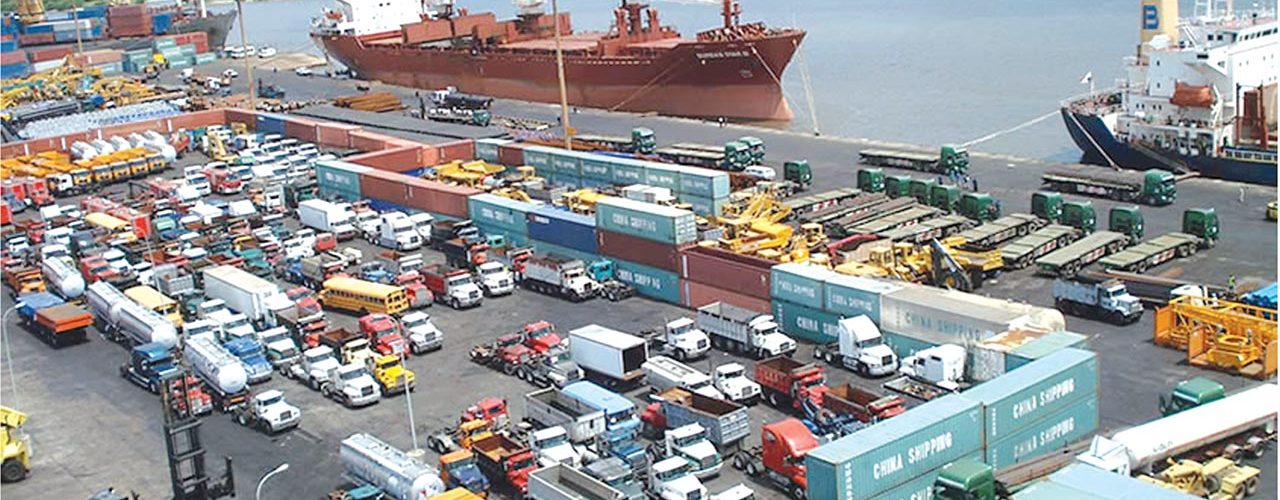To process export cargoes faster and boost foreign exchange earnings, the Nigeria Ports Authority (NPA), in August 2022, approved the establishment of 10 new Export Processing Terminals (EPTs) across the country. In addition to boosting foreign exchange earnings, the EPTs also solve the challenges of rejection of Nigerian Agro-exports by importing countries usually over quality concerns.
Goods for export often get expired or rotten, having spent too much time accessing the port and on the sea. According to the managing director of NPA, “the essence of those terminals is first of all for exporters, especially for the export of Agro produce, minerals to be able to take their exports to those locations.” These products are processed, certified, and containerized, and are then transported to the port for onward export.
Earlier in November, the NPA licensed 5 of the approved terminals to commence the operation of handling and processing export produce. The five export processing terminals licensed are Diamondstar Port & Terminals Ltd, Ijora; Esslibra Terminal, Ikorodu; Sundial Global Trade & Service Ltd, Kirikiri; Bellington Cargo Ltd, Okokomaiko; and Tenzik Energy Ltd, Kirikiri Lighter Terminal.
The establishment of these terminals will reduce the pressure on the Apapa and Tin-Can Island port terminals in Lagos, which also serve as processing centres for export goods.
Also, amidst dwindling oil revenue and ongoing efforts to drive agro-export, the terminals will increase Nigeria’s export earning capacity.
How the Export Processing Terminals Work
The terminal will serve as a pre-gate for all export goods. Goods arriving at the terminals are processed, certified, and sealed for onward delivery to the Port. This process eliminates the need for inspection of export goods at the port by the Nigeria Customs Service, aiding port efficiency and operations.
Besides the EPTs, the Nigeria Export Promotion Council (NEPC) has approved 13 export warehouses across the country to aid the efficiency of these terminals. Also, the Nigerian Customs will only consider goods coming from these warehouses for access to the EPTs. This eliminates backstage dealings and ensures absolute compliance by exporters.
Out of the five licensed terminals, the Lilypond terminal in Ijora, Lagos, operated by DiamondStar Port and Terminal limited is the first EPT inaugurated and commissioned in Lagos to begin operation. While the exact operational capacity is unknown, the managing director of the terminal suggested that it could process about 50,000 boxes of export container weekly.
Similarly, the Esslibra Terminal in Ikorodu, which covers about 120,000 sqm – including an Export Processing Zone, Trailer Park, RoRo facility, and Fuel Dump – is expected to process as many export containers. The operator also offers over 100 dedicated trucks, seven barges, two cranes, and eight container handlers, among other on-demand cargo equipment.
Effects on the Economy
The establishment of these export processing terminals could not have come at a better time with non-oil export hitting $2.6b in the first half of 2022 alone. This represents a 62.37 percent increase from the $1.59 billion exported within the same period in 2021. With an emphasis on Agro-produce and mineral resources, Nigeria will benefit immensely as a major producer of cotton, cocoa, cashew nuts, and other agricultural products that are in great demand. Export proceeds will eventually help to bridge the shortfall of foreign exchange in the country.
Full operationalization of these EPTs will also open up opportunities for foreign direct investment into critical sectors like manufacturing, mining, and agriculture, creating thousands of job opportunities for young people along the way.
The commissioning of these export processing terminals indicates a significant commitment from Nigeria’s current leadership to diversify the economy away from crude oil, increase domestic production, and boost foreign exchange income. These EPTs proffer solutions to export bottlenecks facing exporters in Nigeria, such as delays in accessing ports and rejection of goods because of deterioration of quality at the port of destination.
However, the ounce remains on government regulatory agencies such as the National Agency for Food and Drug Administration (NAFDAC), Standard Organisation of Nigeria (SON), and others to ensure efficient quality checks on export goods before they arrive at the port.


Leave a Comment